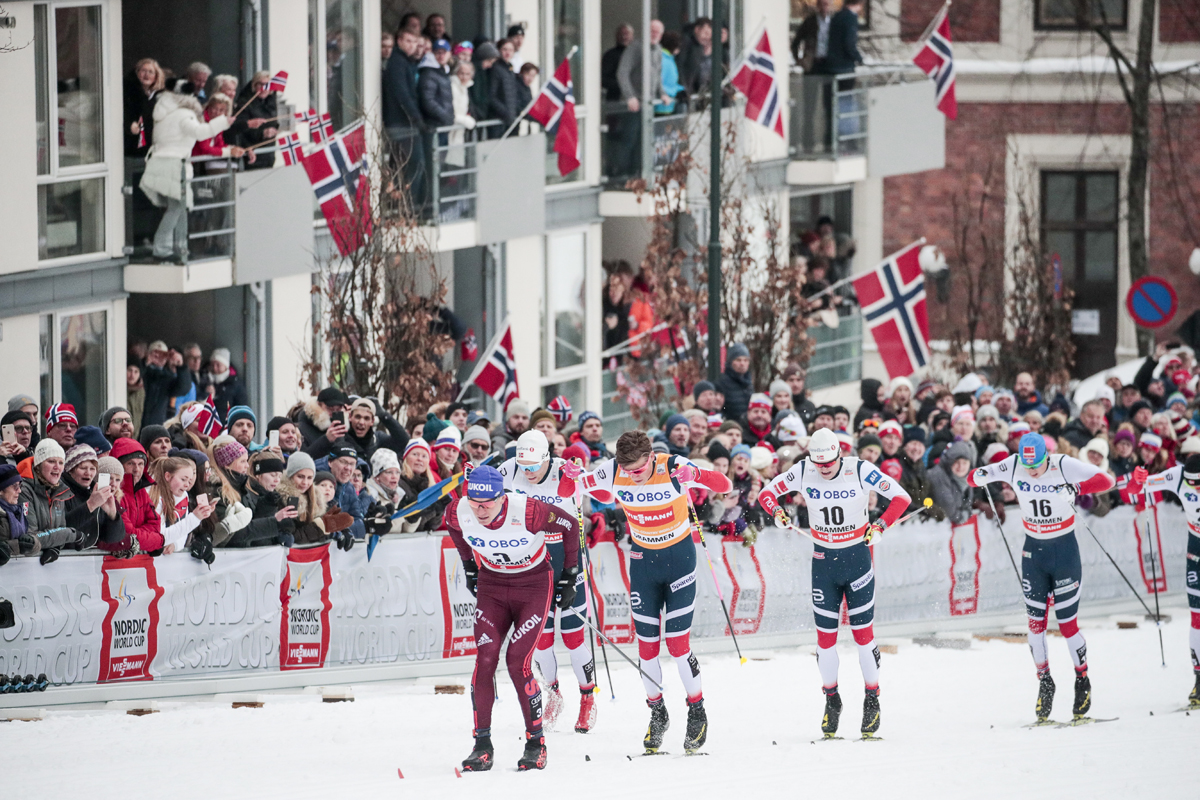
This is the second part of a three-part series on Russia’s Alexander Bolshunov. You can find part three here.
During the season of 2018/19, there was fierce competition for the overall World Cup between Johannes Høsflot Klæbo and Alexander Bolshunov, who surprised the Norwegians by proving to be a versatile and resilient competitor.
Sergey Ustiugov was initially seen to be the main threat to Klæbo’s World Cup campaign, haunting him in the Tour de Ski until the penultimate race of the Tour in Val di Fiemme, Italy. It was a bad day for Ustiugov, and his teammates made it worse, with Bolshunov leading the effort to drop Ustiugov. The race cost Ustiugov more than 40 seconds to Klæbo, doubling the Norwegian’s lead.
Hans Christer Holund couldn’t believe what he was seeing, saying, “They’re as stupid as bread…I just had to laugh inside myself, even though I was tired.” Nossum, the Norwegian distance coach, also delighted in thanking the Russians for the victory on Instagram.
Markus Cramer, a coach for Russia, tepidly defended Bolshunov’s greedy maneuver. “We have another runner, Bolshunov, who can fight for the overall winner. He wanted to take his chance. This is normal.”
When Bolshunov was asked another time if he would work together with Ustiugov in a race he responded, “Through the race, we can help each other, but Sergey and I are rivals. We are friends, but not close friends.”
Ustiugov was in Cramer’s group, Bolshunov in Borodavko’s—there was no special alliance. Bolshunov wanted to try and win the race, and he didn’t especially care if it cost Ustiugov the Tour.
After the final climb up Alpe Cermis, Klæbo was the winner. Ustiugov was second, just 16 seconds behind. Bolshunov would finish fifth in the Tour, and third in the race that spoiled Ustiugov’s chance.
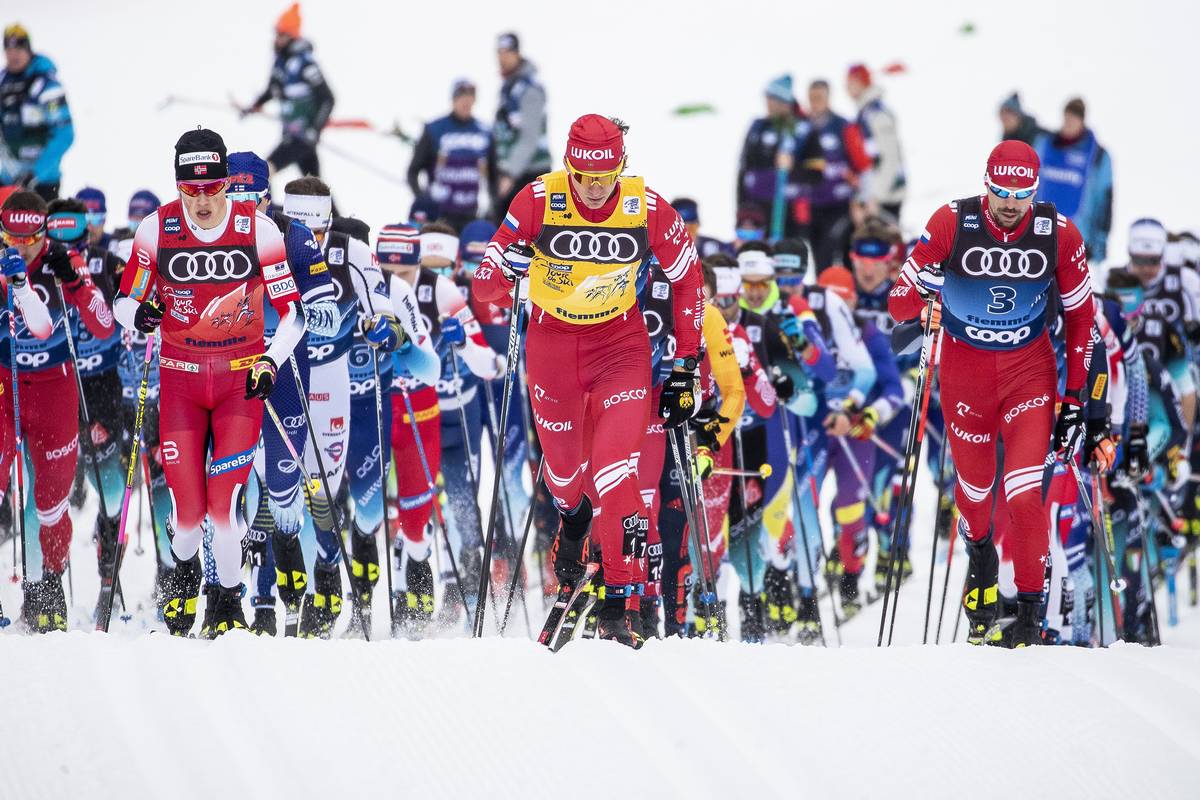
As the season progressed, the Norwegians continued to taunt the Russians as a hapless bunch, too concerned with fighting each other for places on the team to mount a genuine threat. Nevertheless, as the season progressed, the point spread between Klæbo and Bolshunov grew tighter.
An altercation between Ustiugov and Klæbo in the World Championship sprint race in Seefeld would add bad blood to the rivalry. Klæbo cut Ustiugov off on a corner, riding over his skis. Ustiugov responded by slapping Klæbo on the face. The jury disqualified Ustiugov for unsportsmanlike conduct while Klæbo’s interference went unpunished. For the Russians, it was further evidence substantiating their claims that the rulebook applied to only one team.
A couple of weeks later, in the Holmenkollen 50-kilometer race, Bolshunov, who was skiing just ahead of Emil Iversen, stopped abruptly just before the intermediate sprint, thwarting Iversen’s chances to collect points. Bolshunov received a warning for unsporting conduct, and the move marked a new era of hostile racing between the countries. Bolshunov ultimately won the marathon, awarding him an awkward audience with the King of Norway and the leader’s bib going into the season finale in Québec.
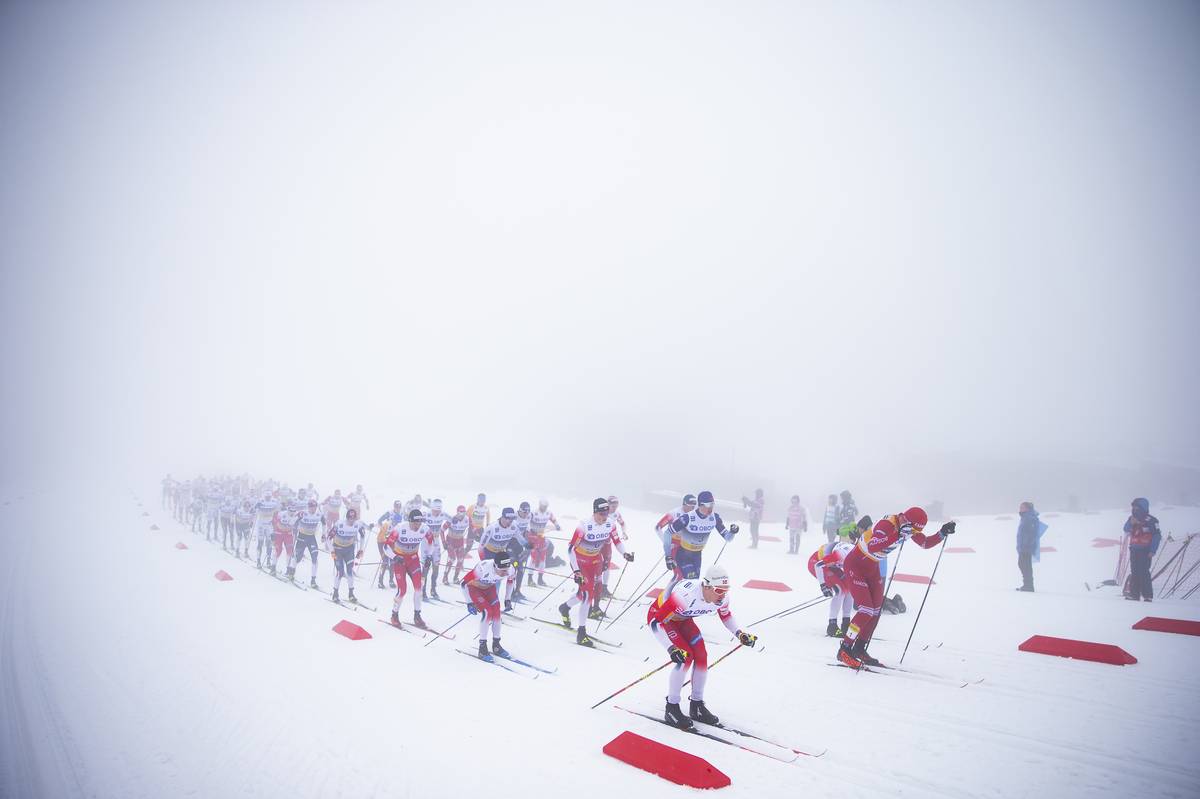
The mistrust between Norway and Russia showed in Québec. The Norwegian team declared they would be helping Klæbo in any way they could. “That is the only thing we talk about,” said Sindre Skar, a Klæbo teammate. Cramer expressed his hope the Norwegians would compete fairly in Québec. “I’m sure they will try to help Klæbo,” he said, “but I hope they do it in a fair way.”
Skar denied that any unfair tactic was in the playbook; “we do not do that,” he said. Still, the Norwegians did take a somewhat cynical approach to end Bolshunov’s sprint day. Norwegian sprint coach Arild Monsen confirmed he directed Golberg and Iversen to join the first quarterfinal with Klæbo, Pellegrino, and Bolshunov, turning the first round heat into a stacked field worthy of a final. The aim was to see if they could knock Bolshunov out early and thereby maximize Klæbo’s point tally over the Russian.
Ultimately, the strategy didn’t work and the two contenders ended their day prematurely—a sacrifice the two Norwegians were willing to make. Skar clarified that there was nothing untoward about this, “no one goes to destroy [him], we go to beat him, we do not go to step on [his] pole. We do not do that.”

With only 24 points separating the pair going into the final two races, the relationship between Bolshunov and Klæbo was more frosty than friendly. Bolshunov recounted a slight he perceived from Klæbo at the World Cup finals that year in Québec City. “When we were leaving the ski stadium in Québec, the organizers provided one bus for everyone,” recalled Bolshunov. “The bus was full, the only free place was next to me – but Johannes passed it by, went further back to look, did not find anything. Then another Norwegian did the same. I’m like ‘whatever, if you prefer to be standing in the bus rather than sitting next to me that’s your call!’”
Alexander Legkov had a more diplomatic explanation, “If Sasha spoke English calmly, they would sit with him.” He surmised the Norwegians found it too awkward to sit next to their rival without being able to share words.
Klæbo, with the entire Norwegian men’s team working for him, secured the crystal globe in Québec. It was a tough loss for Bolshunov, who had been the leader just a week before in Oslo.
The Norwegian team tactics were a sore spot in the Russian camp. They considered the use of cycling strategies unfair in what they felt should be an all-out competition. “We do not have a club sport, but an individual one,” commented former Russian skier Evgeny Dementiev. “At the World Cup, there are slightly different concepts and values.”
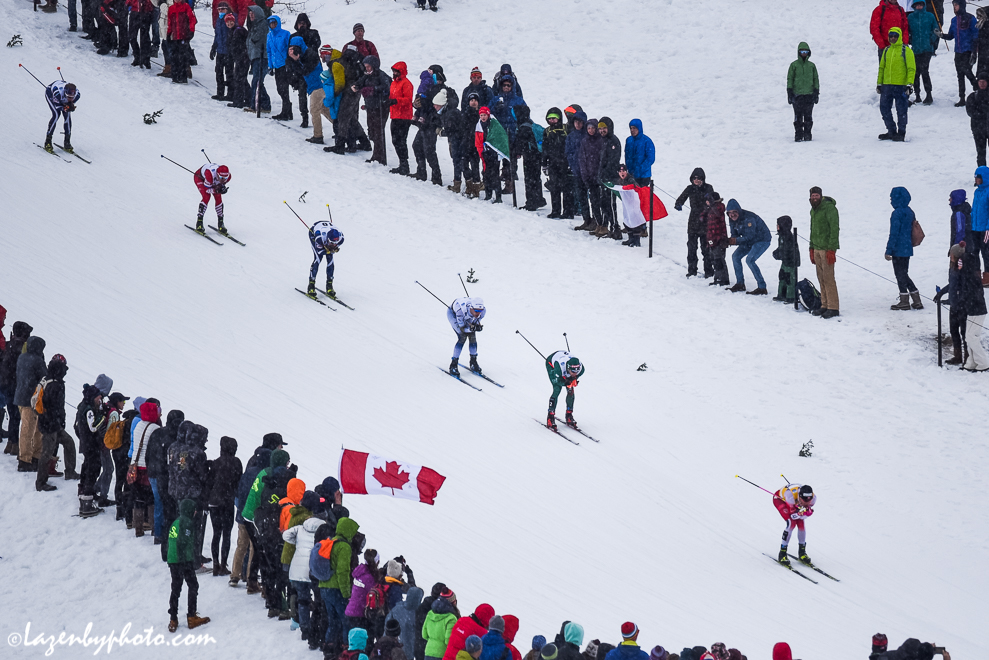
The inability of the Russians to respond with their own teamwork ceded a distinct advantage to the Norwegians in sprints and mass start races. It exposed a weakness in the Russian system that couldn’t easily be corrected. Part of it came down to team culture, but the separation of the national team into four groups that rarely overlap meant there was little incentive, or direction, to sacrifice for a member of another group.
The team itself is oversized, some 39 strong in 2021, meaning that a majority of its athletes do not start any given World Cup race. Few of the skiers can afford a poor result if they want to stay on the circuit.
Legkov has called for a revision of the Russian playbook saying, “I want the team to act according to the principle ‘It doesn’t matter who, as long as they’re Russian!’” Dementiev has said that the national team coaches hold the power to change their approach to racing. “If the coaching staff sets the task, then no one will engage in selfishness…But they have to make the decision themselves, the coaching staff and the guys. Everything is in their hands.”
The 2019/20 Season: Contentions
In the spring of 2019, Bolshunov felt it was time for another change. He left the Tyumen region team and signed a new, more lucrative four-year deal with the Arkhangelsk region, which had secured a new patron in the form of a lumber conglomerate. Bolshunov, Zherebyateva, and Neprayeva would be new additions to the team.
Bolshunov’s rise the previous season was seen as a serious threat to the hegemony of Norwegian dominance. Bolshunov started strong, winning the Tour de Ski and celebrating on the podium over a miserable looking Klæbo. Later that winter, Klæbo broke his finger, mis-landing a punch on a boxing bag. Once Klæbo returned to the Scandinavian Tour in February, the tension returned. Bolshunov himself was not entirely convinced by the broken finger story saying, “I understood that this was strange information. Either it’s true or not.”

Klæbo needed a victory at the Scandinavian Tour to turn around a point deficit and work towards regaining the yellow bib in the later stages of the World Cup calendar. Bolshunov took control of the Tour early but felt the Norwegians were stooping to new lows to thwart his campaign after Simen Hegstad Krüger fell awkwardly in front of Bolshunov in the sprint semifinal, robbing him of precious points. Bolshunov felt the move was intentional, to take him out of the race.
“Apparently, the Norwegian national team is going to fight me unfairly. After today’s race I am very angry with the Norwegian team. I’m just angry! The more they do this, the more they will anger me and the stronger I will have to become. He apologized? Well done, but this is not enough. You have to fight honestly.”
Borodavko backed up his athlete, saying, “Indeed, the Norwegian simply brazenly tried to oust him and provoke a fall, so this prevented him from fighting for higher places. How much was done from the Norwegian on purpose, it is very difficult to say. But it was clear that he openly and deliberately went to the collision.”
Russian ski fans were incensed and took to Instagram to vent their fury at Krüger and called on Välbe to respond. Välbe told them: “It’s a pity that you think that we are not protesting. We serve [protests], but out of ten maximum one is in our favor. What do you propose to do?”
The next day was a distance race and Bolshunov easily won despite breaking a pole. Spitsov supplied him with his own, a possible sign the Russians were beginning to work together toward mutual success. “…Spitsov sacrificed a stick when I broke mine. This is so cool,” said Bolshunov.
Nevertheless he dispelled the notion that the Russians were starting to work together in races, “We will not be able to do this, there is no such approach in the team.”
But this race too was not without its detractors. Iversen, a provocateur of Bolshunov in general, declared that he must have paid off the snowmobile driver who was taking video of the race. Iversen alleged Bolshunov had unfairly skied alongside the snowmobile to use it as a draft from the fierce crosswinds.
Likely Iversen meant this as a clap back for Bolshunov rousing the Russian fans’ ire against Krüger after his fall in the sprint race.

With Bolshunov holding a solid lead going into the final race of the tour in Trondheim, disaster struck when the Russian team made the decision to go with klister. The Norwegians, with their own meteorologist on staff tracking the changeable weather over the Granåsen ski stadium, switched to rub skis just before the start.
When Pål Golberg, the winner of the day, saw Bolshunov on the start line with klister skis, he knew his race was over. Bolshunov said that he too had realized he had the wrong skis but had no time to correct the issue.
“They were very happy when they were overtaking me. I saw their beaming smiles, especially from Iversen,” recounted Bolshunov about his unfortunate race that saw him lose the Scandinavian Tour. Afterwards he threw his skis and ripped his leader bib off his body as camera crews followed him. He described his meltdown as a performance for Norwegian TV station NRK.
Välbe didn’t see any harm in Bolshunov’s finish line display. “It is not necessary for a person to keep emotions in himself at such moments…Emotions must be thrown out. I was taught to yell in the forest, and I did it after all the failures.”
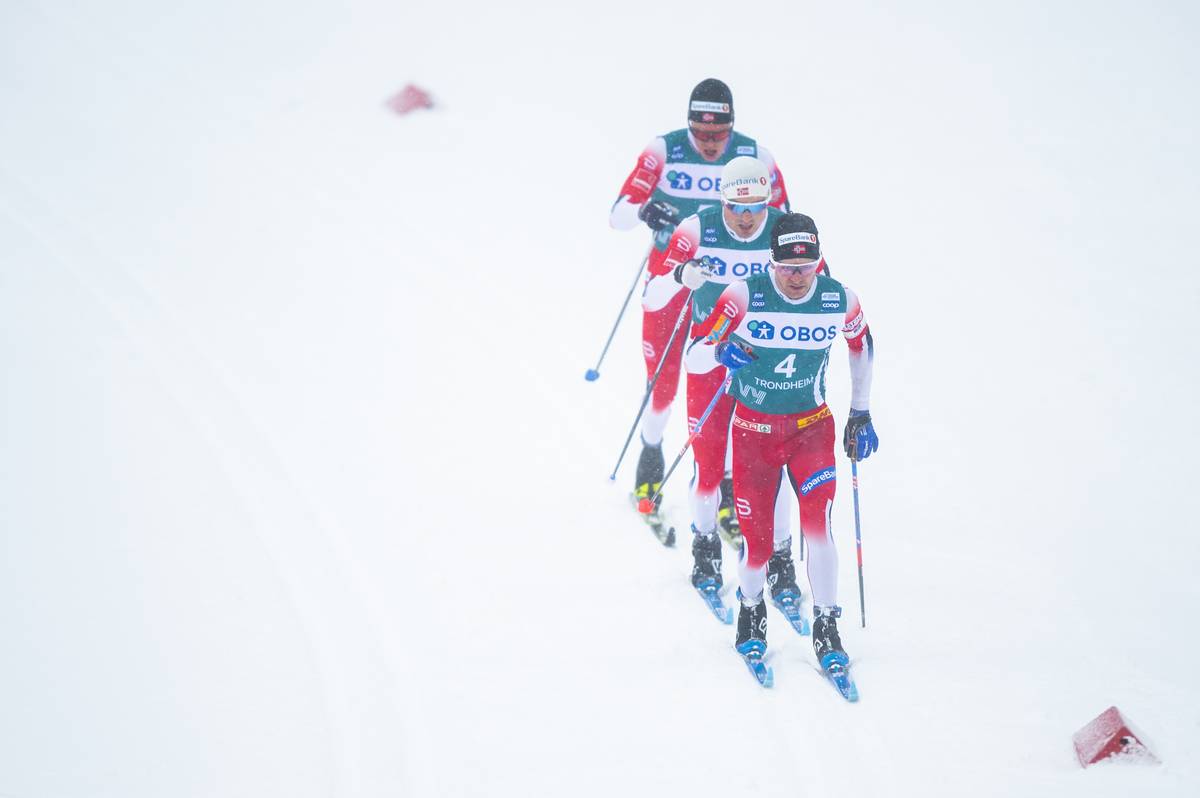
There was a note of bitterness in Bolshunov’s final assessment of the Ski Tour. “I was not surprised that the Norwegian skiers tried to actively…use command tactics against me. In Norway, tactics always come first.”
When the final showdown of the 2020 World Cup season in Canada and the U.S. was cancelled due to the emerging pandemic, Bolshunov—the points leader at the time—was crowned the overall World Cup champion. Still, the victory felt incomplete to him. “One might say that there were no first emotions,” he said about hearing the news that he had prematurely won the title, the first Russian man to do so in the post-Soviet era. “I wanted to bring this business to the end and stand together on a pedestal with my rivals, stand above Klæbo and Røthe.”
There was another perceived slight when only Sjur Røthe reached out to congratulate him via text message. Klæbo, whom Bolshunov had so looked forward to standing over in Canmore, was silent. “I think Klæbo, Sasha’s main rival, was just very upset.” Thought Välbe, “He is an easily vulnerable person, he could not find the strength to congratulate Sasha.”
Bolshunov’s plan for the crystal globe was simple, “I’ll take the globe home and hide it, put it in a quiet and peaceful place.”
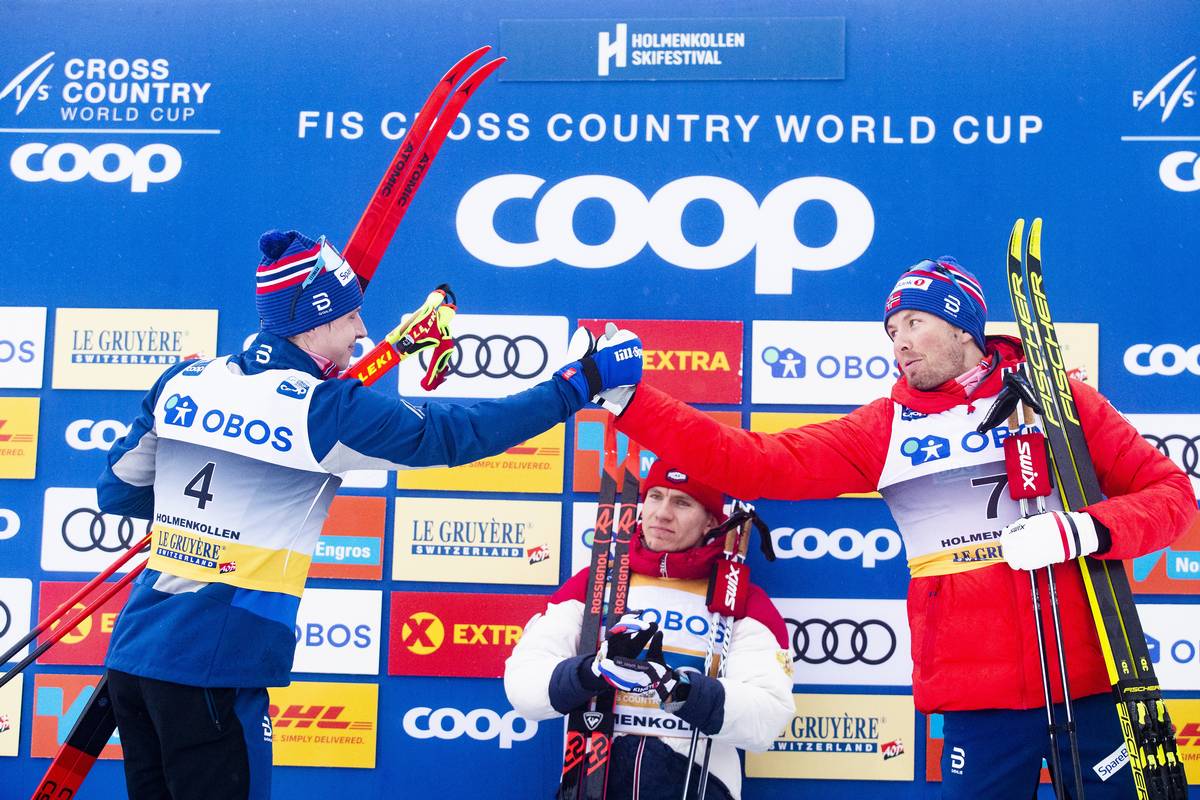
The prized globe took a long time to reach Russia, a delay owed to the pandemic. One morning that spring while Bolshunov was at home in Podyvot’ye he awoke to find that his father, impatient with the delay, had built and painted a wooden approximation of the globe for him.
His achievement that season would see him invited on a popular late-night talk show and nominated as Russian athlete of the year.
Despite the accolades, the interrupted season left him unsatisfied. The next season would surely bring a new chance to revisit his rivalry. There were loftier goals for Bolshunov, who reminded everyone, “I’m not the king yet.”
Pasha Kahn
Pasha Kahn writes and coaches in Duluth, Minnesota.



